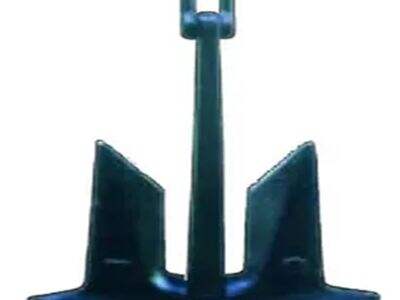The usage of rubber fenders is highly crucial for boats and docks They also help protect these structures from damage due to boats bumping into them. What if you were playing outdoors and accidentally crashed into something? It might hurt. Rubber fenders act like a soft cushion and absorb the impact when the boat hits. The cuffs are soft and flexible, which allows them to deform and absorb the energy from the collision. This also helps protect both the boats and the docks themselves from being damaged.
Types of Rubber Fenders
Each rubber fenders types has its unique characteristics. The more common of fender types that you will come across is the cylindrical fender. This is a tubular-style fender meant to protect against impacts from larger vessels. This worked really well, especially in crowded areas with boats coming in and out all the time.
One more form of Gummikotflügel is a D-shaped fender. This is a good fender for small boats and for use on docks. Because of its shape, it can conform very well to the edges of boats and docks, which gives it good protection without taking too much space. And lastly, there are cone fenders. These will usually be used where there are gusty winds or heavy seas. This shape helps them stay in place and absorb the force of the waves while keeping everything else safe.
Selecting the Appropriate Rubber Fender
A few considerations should be made when selecting a rubber fender for your dock or boat. First, think about how large and heavy your boat is. Smaller and larger boats may require a firmer fender such as the cylinder shape. And consider where your boat is going to be. If it's in a busy, congested area with high volumes of boat traffic, cylindrical fenders are generally the way to go. But if your boat is smaller or in a more secluded location, then D-shaped ANKER could be your best fit.
Advantages and Disadvantages of Rubber Fenders
In this article, we will be looking at different types of rubber fenders and its pros and cons. For instance, cylindrical fenders work exceptionally well at absorbing the impact of hits, preventing damage. But they may not last very long, and so you may have to change them more frequently in order to protect your boat and dock. For example, D-shaped fenders tend to be more durable and long lasting than a cylindrical fender, yet may not absorb heavy impacts as effectively as(fenders).
Maintaining Your Rubber Dock Fenders
If you have rubber fenders, you can keep them in pristine condition with a few key maintenance steps. For one, you should regularly look at your fenders to make sure they are not damaged or worn out. Check particularly to see if they’ve developed any cracks or tears that might render them less effective. Then, wash your fenders with mild soap and water. This will aid in removing dirt and grime without damaging the rubber. Avoid harsh chemical as they will damage the rubber and it will not work properly over time.
With proper care, rubber fenders will keep your boat and dock safe for many years.
Zjstar One of the leading CHAIN manufacturer in marine industry for various boat applications. Our fender have the best protection and performance. We try to make them tough and effective and easy to use. With our extensive range and many fender types and sizes available, we can help find you the specific fender that you need. Contact Zjstar and discover our range of products that can help you get reliable rubber fenders for your dock or boat.
 EN
EN
 AR
AR FR
FR DE
DE IT
IT JA
JA KO
KO PT
PT RU
RU ES
ES
